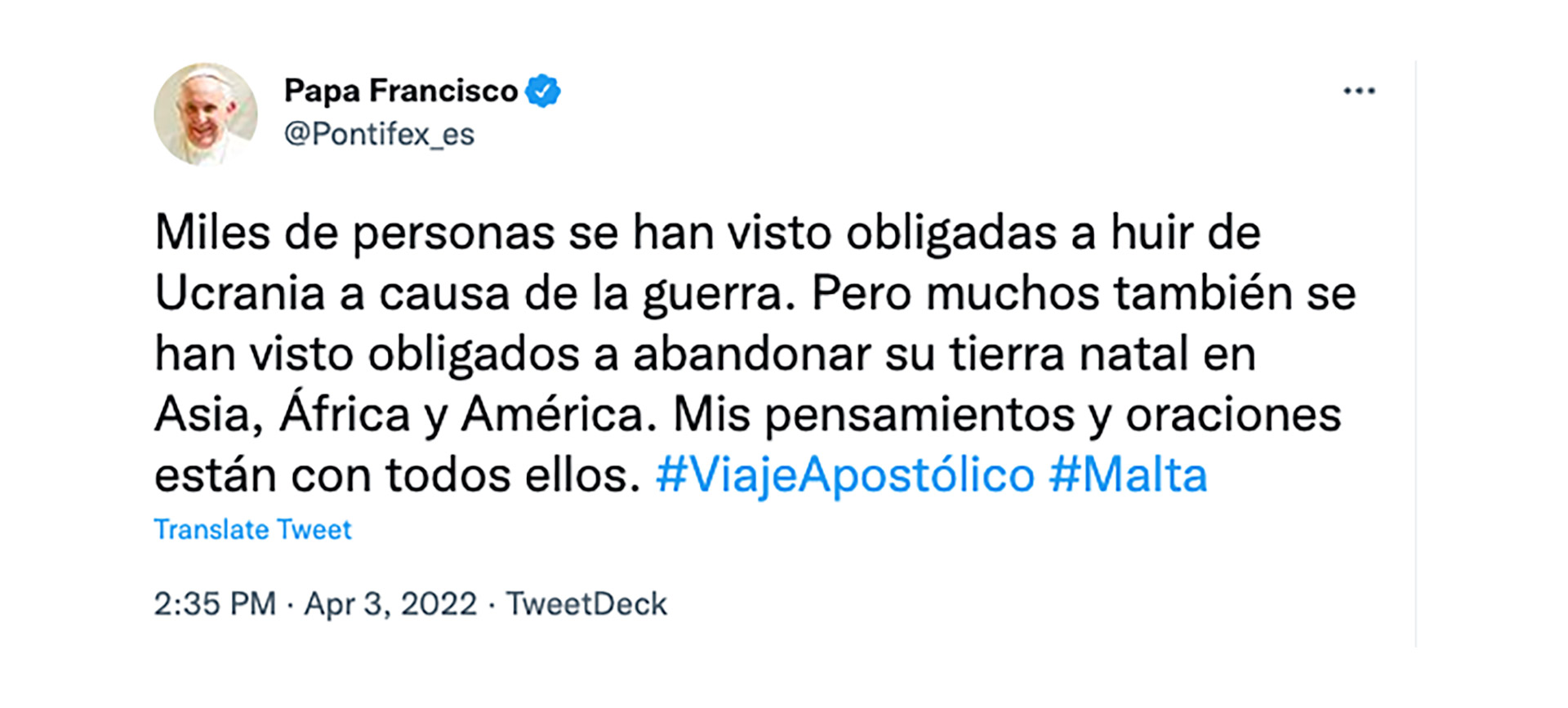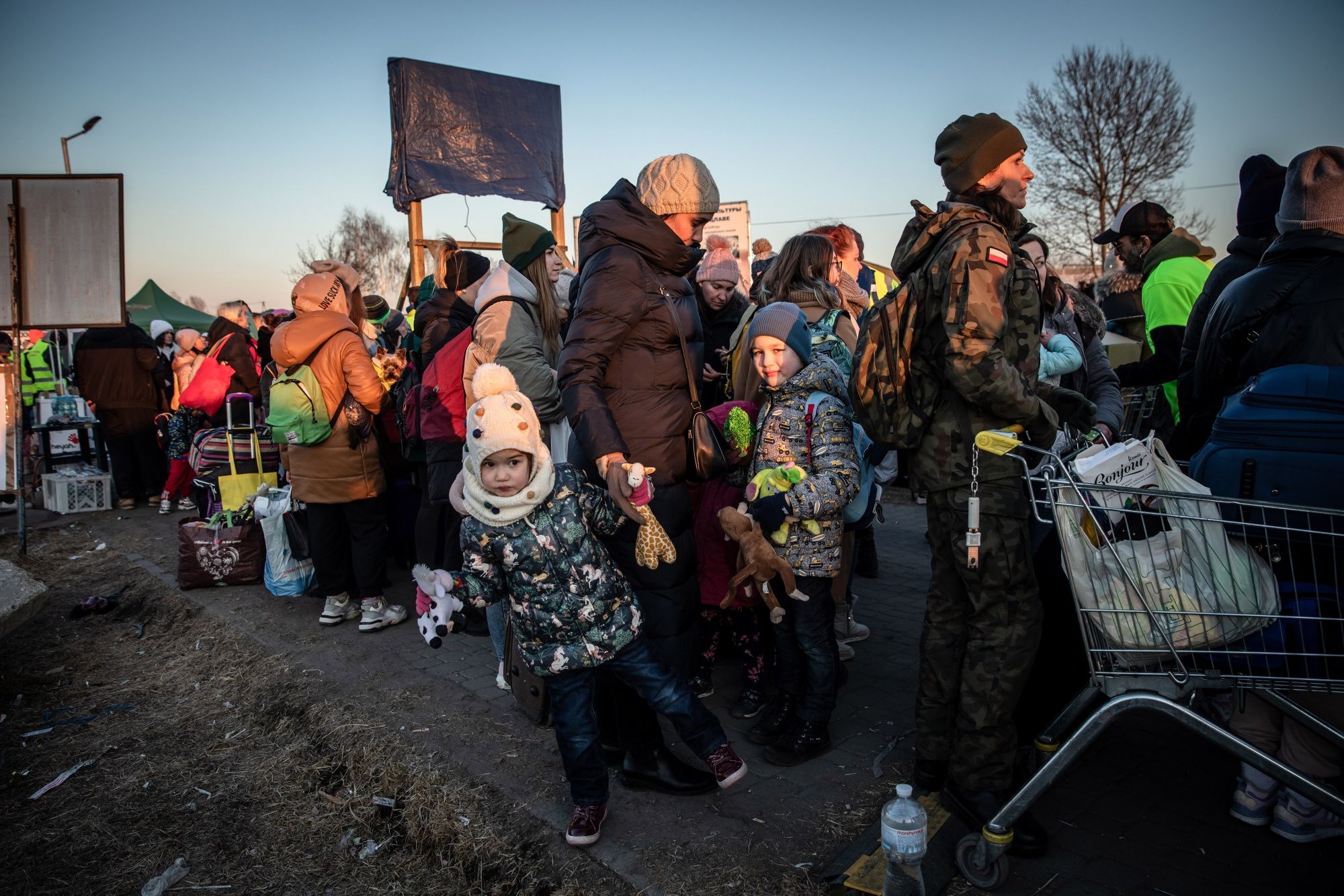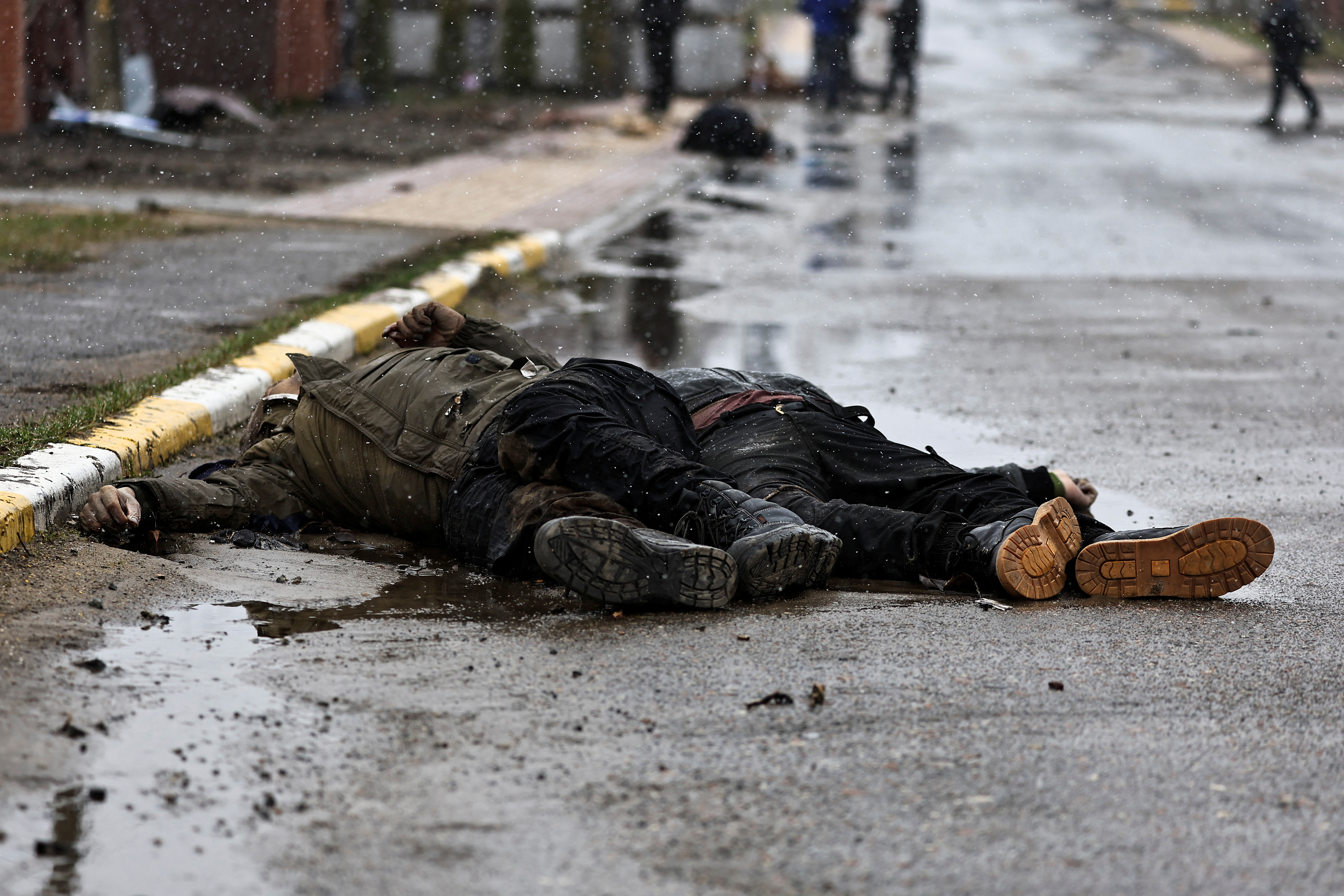
“Thousands of people have been forced to flee Ukraine because of the war. But many have also been forced to leave their homeland in Asia, Africa and America. My thoughts and prayers are with them all,” Pope Francis posted on his official Twitter account.
His remarks were part of the press conference he held on the return flight from his two-day visit to Malta, where one of the main topics was migration flows to the countries of southern Europe.

However, the Pontiff did not give the correct data: because there are not thousands of Ukrainian refugees, more than 4 million refugees without water, food, fuel or medicine, and mostly women and children, flee the barbarism of Russian troops.
And the number is increasing, because they continue to flee their homes, from their invaded cities, creating the largest flood of European refugees since World War II. And according to the UN, there are nearly 6.5 million internally displaced persons in the country.
In addition, the adversarial conjunction “but” that the pope chose for his message may hurt even more those who lost everything and left part of their family behind because of the offensive unleashed on February 24 by Vladimir Putin.
The awkward situation that Francis put himself in today is not an isolated episode in this month of conflict. Throughout these days of violence - described as war crimes by Western powers - the Francis has carefully avoided appointing Russian President Vladimir Putin, or even Russia itself, as aggressor.

Days ago, The New York Times revealed that some of its own bishops and other supporters within the Roman Catholic Church want it to give names, and even warns that historians say that the pontiff risks slipping off his high moral ground and entering a murky space prominently occupied by Pope Pius XII, the war-era pope who avoided talking critically about Hitler and the Axis powers while Germany invaded Poland and eventually perpetrated the Holocaust.
“In many ways, the pope's current situation is reminiscent of the situation Pius XII faced,” assessed David I. Kertzer, a historian of the Vatican and Italy whose new book, “The Pope at War”, about Pius XII, Mussolini and Hitler, will be published in June. Kertzer explained that Pius XII also sought a balance between internal interests and the public demand to speak, as he resisted the great pressures to denounce Hitler. Instead, he used generic language about the horrors of war, which Kertzer said Francis was now echoing. “The position you are taking, or are not taking, is not without risk,” he said.

A recent editorial by the National Catholic Reporter, which is often sympathetic to Francis, urged the pope to draw Putin's attention. “Whatever is going on behind the scenes, it's time for Francis to tell the truth about the murderous assault on Ukraine,” he said, adding: “It's time to tell things as they are. This is Putin's war and it's evil.”
This weekend, after more than a month of offensive, Ukrainian forces managed to regain control of more than 30 cities that were under occupation and discovered a scary scenario: hundreds of civilians massacred by Putin's troops. So serious is the situation that the Western powers demanded that the Russian president - the one whom the Pope does not appoint - be tried in the International Criminal Court for war crimes.
KEEP READING:
Últimas Noticias
Debanhi Escobar: they secured the motel where she was found lifeless in a cistern

The oldest person in the world died at the age of 119

Macabre find in CDMX: they left a body bagged and tied in a taxi
The eagles of America will face Manchester City in a duel of legends. Here are the details

Why is it good to bring dogs out to know the world when they are puppies



